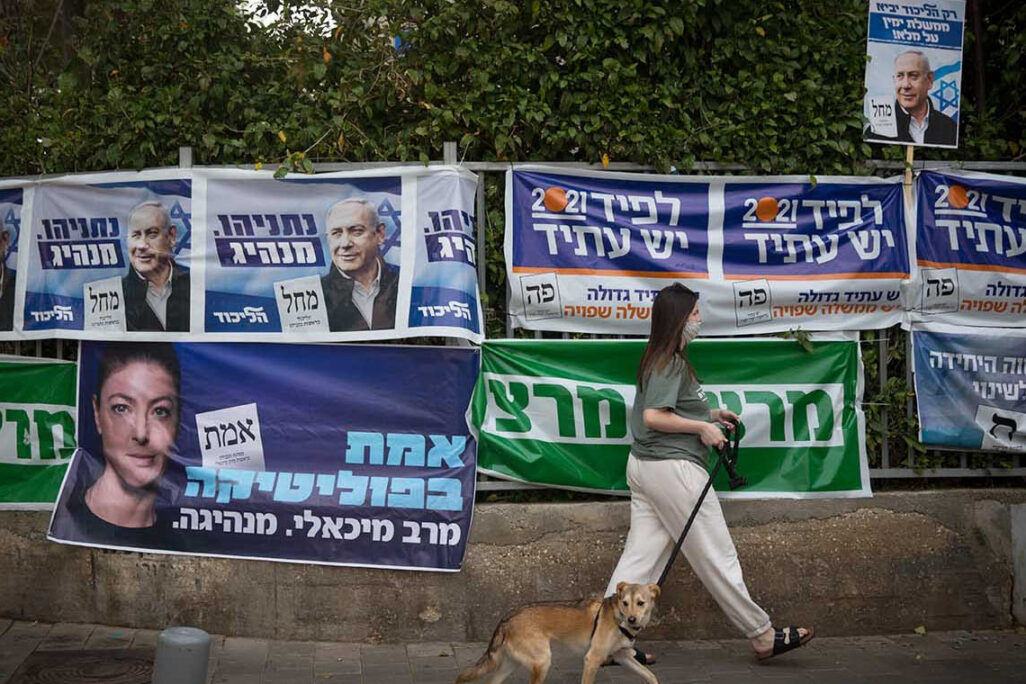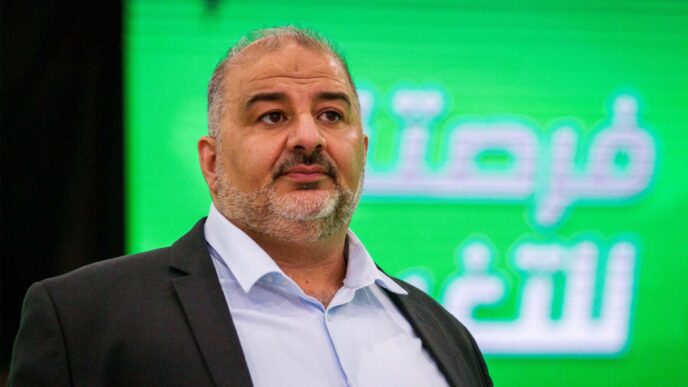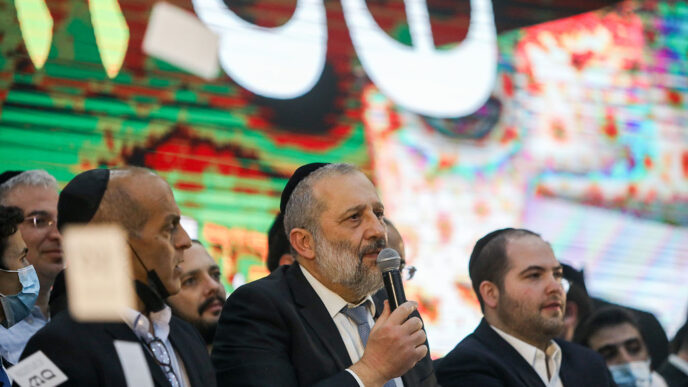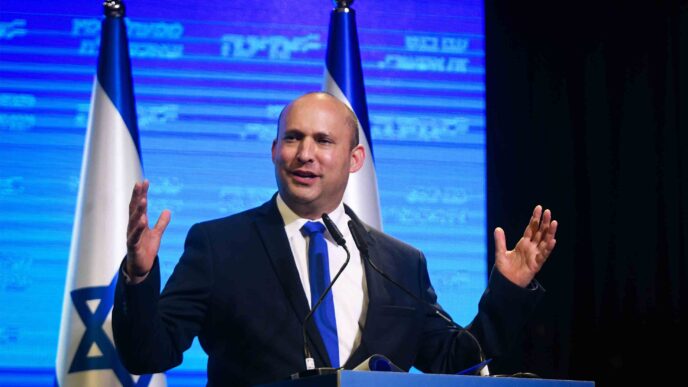
The results of the 24th Knesset elections once again discouragingly reflect an impasse in the Israeli politics. The bloc of parties led by Netanyahu’s right wing Likud has no clear path to a majority. Neither does the opposition, or “change” bloc. This leads to a scramble on both sides to scrape together a slim coalition or else head to fifth elections. However, it is possible to look on the bright side of the situation.
Balance
If a sociologist were to study the last few years in Israel in the future, they could identify a deep political crisis, and a magical figure named Netanyahu around whom everything revolves. But when they dig deeper, they will find a stratified and diverse Israeli society that cannot be forced into a homogeneous government with one cohesive set of values – on the left or the right.
Israeli society is made up of different overlapping layers of identities, ethnicities, religions and economic classes, which balance each other. It is impossible to form a government coalition in Israel without representation for the weaker sectors – the Arabs and the ultra-Orthodox – at the decision-making table around the budget. This is a positive thing for those who see economic management as a tool for social decisions and not forcing undergraduate degree theories into economics.
It is also difficult to impose a conservative or liberal worldview. There is no choice but to reach agreements via consensus, dialogue, and bargaining. This is a positive thing. No group would want to be forced into a certain culture and values.
The Arab parties have joined the game
At the meat restaurant at the gas station near the Azrieli Center in Tel Aviv, a few days before the election, the workers were watching television and saw the King of Jordan cancel Netanyahu's flight over the country's skies.
"This Bibi has no God," said one. “He has no respect. Is that how the king of Jordan is treated?"

I asked who they would vote for. "For Mansour Abbas,” they replied. Abbas is the head of the conservative Islamist Ra’am party which broke away from the Joint List, a coalition of Arab-Israeli parties mainly across the leftist political spectrum.
"Why?" I asked. "So he can sit with Bibi [in a coalition],” they answered.
Netanyahu, they said, would be prime minister anyway, and they want to be provided with funding, personal security, education, infrastructure.
"We want a party like Shas [the Mizrahi Ultra-Orthodox party, which largely takes care of its own community and is part of Netanyahu’s bloc]. For someone to take care of our lives here in this country,” they said.

For years there has been a taboo against sitting with the Arab parties in a coalition. This is mainly due to some of the parties’ non or anti-Zionist stances.
In Rabin’s government, Hadash (Democratic Front for Peace and Equality) and Ma’an (The Arab Democratic Party) supported the government from the outside. Now both competing blocs are already courting Ra’am as the decisive factor.
Abbas announced in advance that he was running separately from the Joint List in order to enter the government and hold more decision-making power, and passed the electoral threshold, with 4 seats. These seats make him the king-maker, with the power to create a majority coalition for either bloc, meaning the age-old taboo most likely will be broken.
Abbas’ achievement marks a political change that seems to have existed for a long time in Arab society in Israel – the desire for a seat at the table. Maybe that time has finally come.
Singapore has no mandate
Yamina only won 7 seats, as of the current vote count. If anyone thought the Singapore Plan, a pro-business plan that cuts income and corporate taxes, would carry the masses, they were wrong.
Naftali Bennett, time and time again, with an economic platform designed to create an economically polarized society in Israel, fails to stand for more than a single-digit number of seats. Even in times of economic and employment crisis, most Israelis won’t buy what he’s selling.

Yamina does not seem to be an important factor in the right-wing coalition either, and we can only hope that it will not be able to impose its vague ideas on the Israeli economy, which needs investment, stability, safety nets and the strengthening of organized labor that leads to overall growth.
Democracy is not only a vote
Israel is far from disposing of democracy, although voting in the elections fell 4.3% from the previous elections, to only 67.2% of the eligible population. It is not yet clear what caused a lower turnout – perhaps corona, perhaps the muggy weather, perhaps it being the fourth round in two years. It is more likely that the absence of a close, head-to-head battle between two major parties for the prime ministership was an important element.
In any case, the turnout in Israel is still higher than in democracies such as the United States or Switzerland (50%), and lower than in countries such as Finland (80%) and Australia (90%).
It is important to vote in elections, but it is equally important to take part in democratic life all year round: to unionize the workplace, to join a movement, an organization, a nonprofit, a political party; to volunteer and meet Israelis from all corners of the political spectrum, see the hardships with their own eyes.
Participation in civic life is essential to ensuring democracy, no less than voting on Election Day. It is also essential to influence elected officials in every Knesset and in any coalition that is formed. The anti-Bibi demonstrations in the past year have affected the center-left bloc, leading to the weakening of parties willing to sit in a coalition with Likud.
The economic protests at the beginning of the pandemic, led to the allocation of tens of billions of shekels for safety nets for workers and the self-employed.
"There is a connection between voluntary bodies and the guarantee of democracy," wrote sociologist Professor Reuven Kahana. “A civil and free society can barely survive or develop without informal mechanisms and organizations, because they allow people to experience a sense of freedom and provide a channel for expressing personal and public interests. In societies that do not have such organizations, there is less chance of a democratic order, especially in conditions of crisis and rapid change.”
What will make Israeli democracy sustainable is not another surplus force for government institutions (they call it "governance" in plain language), but strong social organizations on all sides of the political map.






